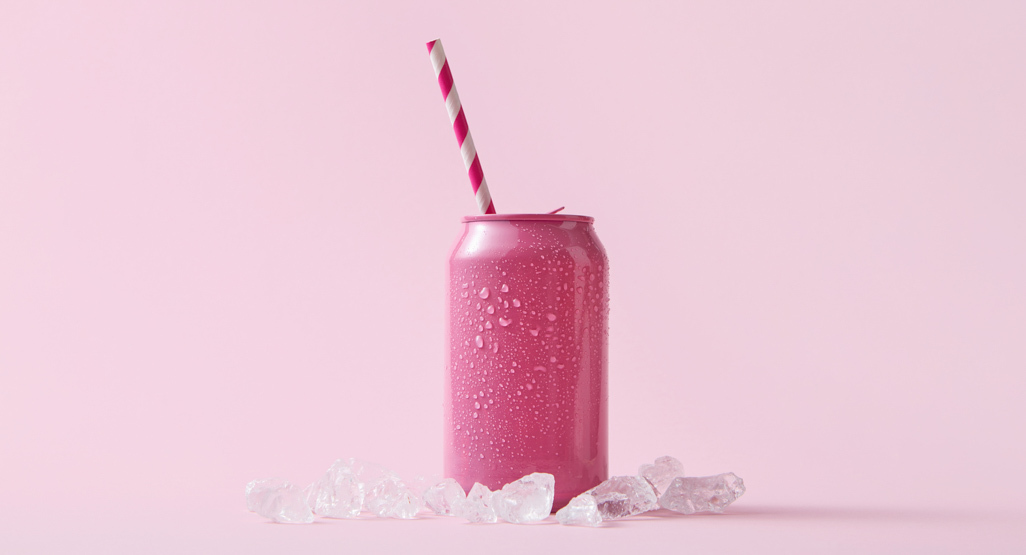
It’s okay to occasionally indulge your soda cravings during pregnancy. The occasional juice is unlikely to harm you – or your baby. But research shows that it’s not a good idea to make drinking soda a daily habit, whether you’re on a regular diet or on a diet.
“Although there is controversy surrounding the safety of caffeine consumption during pregnancy, most research suggests that small to moderate daily amounts of caffeine will not cause harm,” says Shannon Smith, MD, an ob/gyn at Brigham Faulkner Ob/Gyn Associates and a member of BabyCenter’s medical advisory board.
Advertisement | page continues below
Here’s what we know.
Key Takeaways
- Watch out for the caffeine content of soda; the goal is to limit your consumption during pregnancy to 200 milligrams per day.
- Limiting the number of sugary and artificially sweetened beverages you drink during pregnancy can also benefit your health and the health of your baby.
- Enjoy soda in moderation; water, seltzer, and cow’s milk are better ways to stay hydrated.
Is caffeine in soda safe during pregnancy?
It depends. A typical soda contains 35 to 55 milligrams (mg) of caffeine. If you drink caffeinated juices, you’ll want to consider other sources of caffeine in your diet (such as coffee, tea, and chocolate) so you don’t get too much.
The American College of Obstetricians and Gynecologists (ACOG) recommends limiting caffeine during pregnancy to 200 mg per day. When you consume caffeine, it passes through the placenta into your baby’s amniotic fluid and bloodstream. While your body gets rid of caffeine fairly quickly, your baby’s body is still developing, so caffeine takes longer to process. As a result, your baby is exposed to its effects much longer than you are.
Previous research has found that women who consume more than 200 mg of caffeine per day during pregnancy are more likely to give birth to babies who are small for their gestational age. Another study found that women who consumed just 50 mg of caffeine per day during pregnancy gave birth to slightly smaller babies than women who never consumed caffeine.
Although there are caffeinated sodas, it’s also best to limit them, as many are high in calories, which can lead to unnecessary weight gain. Even decaffeinated diet soda is not a great choice during pregnancy (see below).
Is sugar in soda safe during pregnancy?
ACOG recommends that pregnant women avoid sugary drinks in general. Sweet things have been linked to other health conditions. One study, for example, found that children of mothers who regularly drank sodas and juices during pregnancy were more likely to be diagnosed with asthma years later.
Advertisement | page continues below
Other research has found a link between sugar during pregnancy (especially sugar from soda) and a child’s later memory and learning. The more sugar-sweetened beverages women drank, the poorer their children’s cognition and verbal skills.
What about diet soda during pregnancy?
Diet soda may seem like a safer option during pregnancy, but drinking one every day can carry risks. One large study of more than 60,000 pregnant women found that those who drank at least one artificially sweetened juice per day were 38% more likely to deliver prematurely (before 37 weeks) than women who did not drink any diet soda. Women who drank at least four diet sodas a day were at an almost 80% higher risk.
Another smaller study of about 3,000 pregnant women found that those who drank diet sodas daily were twice as likely to have an obese baby by their first birthday compared to women who avoided them.
What to drink instead of soda
During pregnancy, it’s best to drink 8 to 12 cups (64 to 96 ounces) of fluids each day. Your body needs it to aid digestion and form amniotic fluid around the fetus. It also helps nutrients move more efficiently through your body and relieves that pesky pregnancy side effect, constipation. Drink throughout the day, not just when you feel thirsty.
Good choices include:
Advertisement | page continues below
Plain water
You can enhance it with fresh lemon or lime juice or add a few slices of cucumber or apple and fresh mint leaves. Or use frozen fruit instead of ice cubes.
Carbonated water
It keeps you just as hydrated as plain water without the sugar and calories. But bubbles can cause gas build-up in some women, which can lead to bloating and discomfort.
Low-fat milk
Milk contains key nutrients your body needs to stay healthy during pregnancy, such as protein, calcium, potassium and vitamin D. Don’t like dairy? Try fortified soy or nut milk instead.
Fruit or vegetable juice
Go for varieties that are 100% juice: these are good and good for you! But, unfortunately, you will have to give up the freshly squeezed variety. Harmful bacteria that may be on the outside of the product can spread to the juice. To be safe, only buy juice that has been pasteurized, which means heat is applied to it to kill any harmful bacteria. If you make a smoothie at home or order it from a restaurant, it should also be made with pasteurized juice.
Tea
Many teas are safe for pregnancy – including black, green and white tea. Just keep an eye on the caffeine to make sure you don’t exceed the 200 mg limit. Check with your doctor about herbal teas, as some may not be safe during pregnancy. (Chamomile, for example, has been linked to premature labor.) Ginger tea is generally a safe bet and can help with pregnancy-related nausea, too.
Advertisement | page continues below
